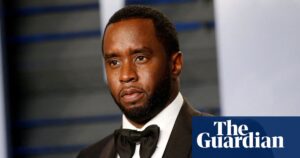
Last year, the documentary Atomic People told the stories of some of the survivors of the nuclear bombs dropped in 1945 on Hiroshima and Nagasaki. Most of them nonagenarians, some in their hundreds, they described with unfaltering clarity their experiences of being caught in the blast. They talked of people coming towards them with organs spilling forth, skin peeling off, one carrying a baby “burned black as stone”, and of lives lived thereafter with knowledge that threatened to corrode them from the inside. Some of the estimated 78,000 who died instantly, out of a population of 350,000, left what looked like shadows against the buildings. Others were vaporised without even that tiny trace. Thousands more would die of radiation sickness by the end of the year, and then would begin the long tail of deaths from cancer caused by direct exposure and mutations passed down to later generations. Survivors were known as “hibakusha”, discouraged from speaking about their awful experiences, and were to varying degrees shunned thereafter, finding it difficult to marry and to find employment as people feared to let them “taint” their families or face the horror they embodied.
It was a harrowing, strangely ethereal and delicate 90 minutes of film, as interviewees remembered what their cities were like before the bombs, before the silver shimmer of the B-29 they all recall was first glimpsed against the clear blue sky. They closed their eyes and the very earliest days of childhood lived again. The documentary did not mark any particular anniversary – simply the fact that time was running out for these people, silenced for so long, to tell their stories, allowing them to function, in so far as is ever possible, as the warnings from history they want to pass on.
The half-hour of What Happened at Hiroshima, marking the 80th anniversary of the bombings, feels, by contrast, like a rushed, crass thing – a duty done, a commissioning box ticked and a presenter, the journalist Jordan Dunbar, required to try to make up for its slightness by emoting instead. For many, perhaps, this will be the appropriate mode of delivery. I, however – ancient, intolerant, embittered on top of natural cynicism and reserve – still feel it as an unnecessary intrusion into a piece. Detachment and stoicism is what allows others’ stories to be thrown into the sharp, stark relief they deserve. Anything else, I think, pulls focus and does a disservice to the viewer and, more importantly, the subjects.
The 30-minute run time is simply too short for such a topic. Take off the introductory few minutes (where they tell you what you’re going to tell you) and the last (where they tell you what they’ve told you) and there is precious little time left to tell anything at all. We skim the preceding history (the Tripartite Pact, 1940! Pearl Harbor, 1941! The B-29 was called the Enola Gay!), then take in a few memories from the quartet of survivors interviewed. We watch Dunbar, visibly moved, in a museum dedicated to the bombings , the room filled with a panoramic photograph of the cities’ devastation. Then we take a brief look at the Cuban missile crisis and estimates of how many nuclear missiles are hunkered and bunkered round the world today – in case we thought the threat had receded.
We’re left with just enough time for a furrowed brow and a bathetic comment that the people in charge may not be listening to survivors’ stories. When this generation is gone, asks Dunbar, will our leaders really understand what it means to push the button? This is where my patience really ran out. To descend to this level of asininity after the quiet dignity and appalling suffering recounted by contributors representing such a colossal, profound, world-changing event simply won’t do.
I’m going to be charitable and assume that this is not going to be our national broadcaster’s only contribution towards marking the 80th anniversary of one of the worst atrocities in human history, of the dawn of a new age whose darkness and horrors have somehow had to have been accommodated within all of us since, wearing callouses on our souls. I’m going to assume there is something more fitting coming along. Perhaps this programme was intended for a younger, more tender demographic than mine and I am judging it by entirely the wrong criteria. I hope so. But I also hope that we can always distinguish between the need to reach and educate new audiences and the impulse to do so by pandering to them.
-
What Happened at Hiroshima aired on BBC One and is available on iPlayer.








